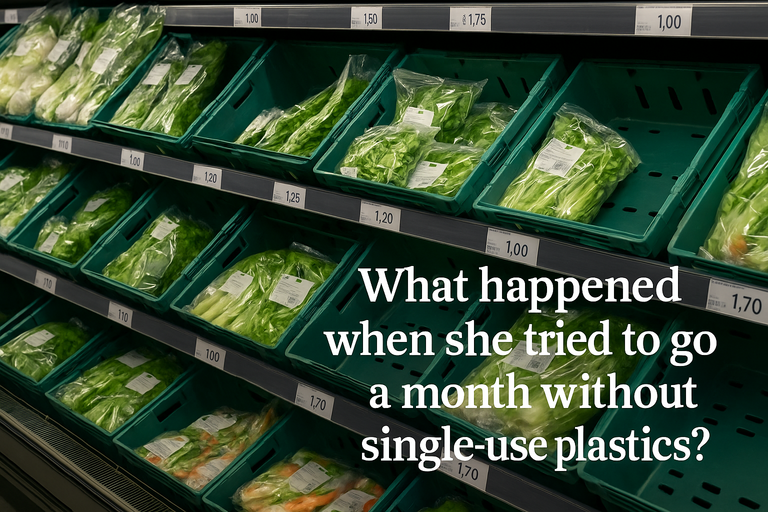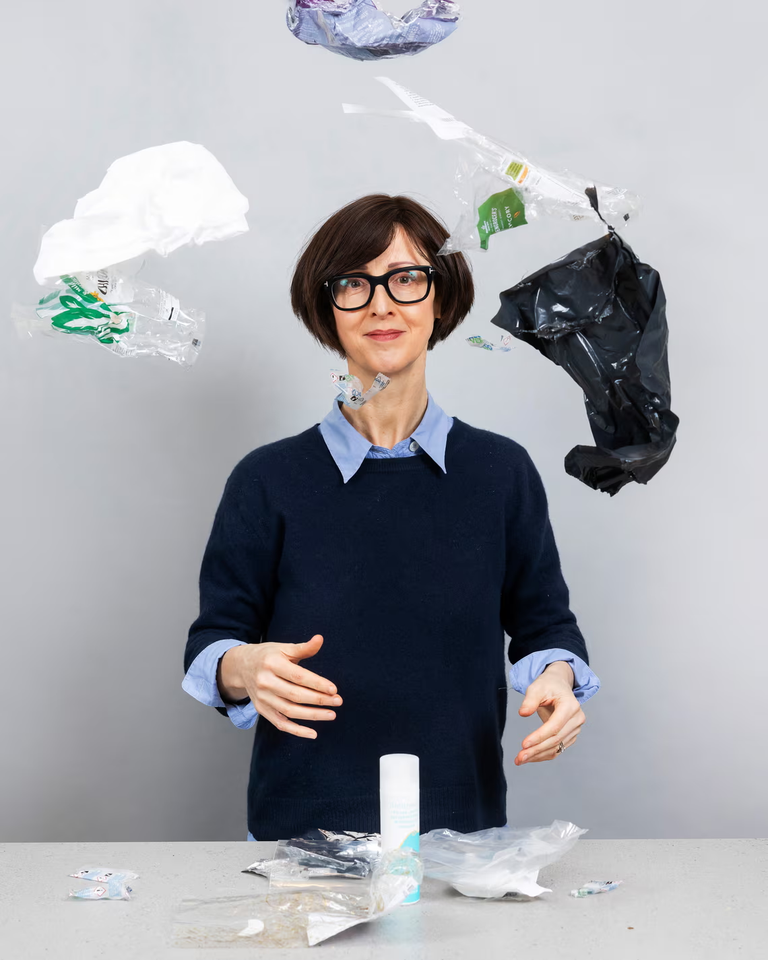One person's attempt to live plastic-free for a month reveals just how deeply embedded single-use packaging is in everyday life.
The plastic pollution crisis is so vast and entrenched that most people try not to dwell on it. But for one journalist, the cold facts were impossible to ignore: millions of tons of plastic already float in the ocean, and the material's durability means it never really disappears—just breaks down into microplastics that now exist in our bodies, food, and environment. A recent UK study counted over 4.6 million pieces of plastic waste from just one week of household tracking. It’s overwhelming.
So when her editor challenged her to live a month without single-use plastics (SUPs), she reluctantly accepted—though not without skepticism. After all, how much difference could one person really make?

Initially, she thought she was ahead of the game. She already used a local refill store for pantry staples and cleaning supplies, shopped at markets, and reused containers. But a closer audit of her home told a different story. Plastic was everywhere—especially in the kitchen. Fresh produce, frozen food, snacks, even “healthy” options were shrink-wrapped or bagged in plastic. And not just any plastic: soft, flexible packaging that’s notoriously difficult to recycle.
Experts she consulted were divided. Some argued that these flexible plastics preserve food and reduce waste. Others said the packaging is often unnecessary and that proper refrigeration, not plastic wrap, makes the real difference.
Shopping became a logistical nightmare. Mainstream supermarkets offered little in the way of loose produce, and many aisles were essentially off-limits. She had better luck at local grocers and zero-waste shops, piecing together meals from what was available: oats, rice, pulses, and whatever unpackaged vegetables she could find. Dinner became a monotonous loop of stir-fries, soups, and baked potatoes. Salad was a rare luxury. Sweet snacks? Nearly impossible. Crisps—a cherished daily comfort—were abruptly out of reach, and no plastic-free substitute quite measured up.
Household products were another obstacle. Refills and compostable sponges were easy enough, but personal care proved trickier. Toothpaste tablets were chalky and unpleasant. Floss, toothbrush heads, and over-the-counter medications all came in unavoidable plastic. Even "eco" products often turned out to be greenwashed or logistically impractical.
Despite her best efforts, some plastic slipped through: packaging on deliveries, essentials like ibuprofen, and an accidental bag of ice. By the end of the month, a small but stubborn pile of plastic waste remained.

Emma and evidence of some of her ‘fails’. Photograph: Fabio De Paola/The Guardian
Source
The exercise made one thing clear—individual change is not enough. Reducing single-use plastic required privilege, time, money, and an unrealistic amount of planning. Most people, especially those with kids or multiple jobs, wouldn’t be able to maintain this lifestyle. Even sustainability experts admitted to compromises.
The root problem, she concluded, wasn’t just personal choice but systemic inertia. Supermarkets keep packaging unnecessary items in plastic. Governments hesitate to legislate against it. And most "solutions" place the burden on consumers.
There are hopeful developments: seaweed-based packaging, compostable alternatives, and research into recyclable "meta materials." But until those are scaled—and unless plastic becomes more expensive—real change will be slow.
By month’s end, she’d built a few lasting habits: shopping locally, avoiding plastic where possible, and supporting refill options. Still, when she finally tossed a multipack of crisps into her trolley again, it was with a bittersweet sigh of relief. One person alone can’t solve a crisis of this scale—but the experience had reshaped her understanding of both her limits and her power.
What’s the hardest single-use plastic to avoid in your daily life, and why?
https://www.reddit.com/r/Anticonsumption/comments/1kn8do7/living_plasticfree_for_a_month_one_persons/
This post has been shared on Reddit by @tsnaks through the HivePosh initiative.
Congratulations @profitvotes! You have completed the following achievement on the Hive blockchain And have been rewarded with New badge(s)
Your next target is to reach 50 replies.
You can view your badges on your board and compare yourself to others in the Ranking
If you no longer want to receive notifications, reply to this comment with the word
STOPhttps://bsky.app/profile/did:plc:sluanggtbwngmvamrtosjlg7/post/3lpgz773smk23
https://bsky.app/profile/did:plc:sluanggtbwngmvamrtosjlg7/post/3lpgz773smk23
The rewards earned on this comment will go to the author of the blog post.